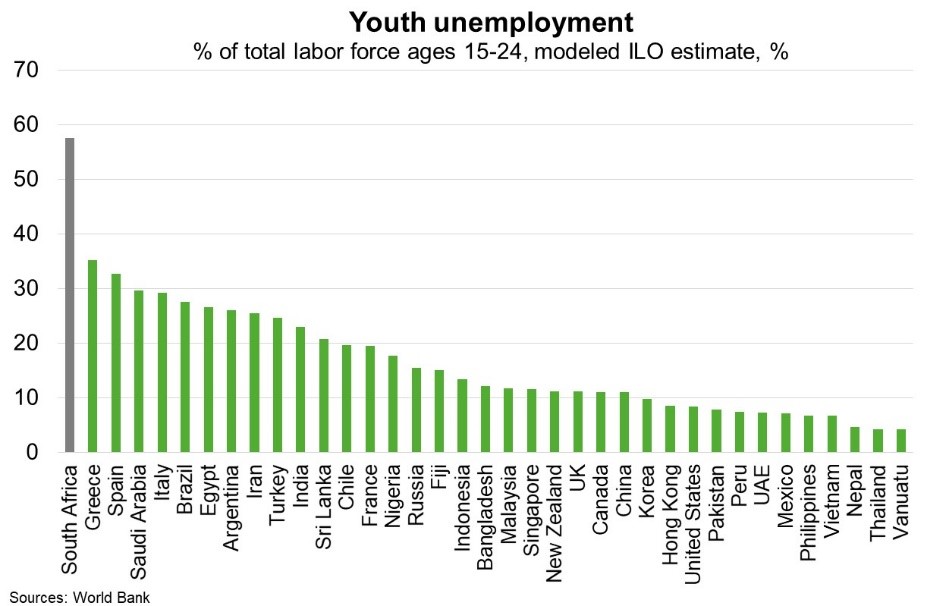South Africa—Social unrest undermines business confidence
Civil unrest including looting and arson occurred following political protests in Gauteng and KwaZulu-Natal provinces. Between 12-16 July, vital transport routes and infrastructure were closed. Deployment of the military to bolster strained police forces has helped restore order. But Africa’s most industrialised economy has faced the worst unrest in its democratic era (post-1994).
The immediate trigger was backlash from supporters of former president Jacob Zuma. On June 29, the Constitutional Court sentenced Zuma to 15 months imprisonment for defying a court order to appear before a corruption inquiry. South African President Cyril Ramaphosa attributed blame for subsequent demonstrations to instigators seeking to provoke a popular insurrection. Nonetheless, the unrest occurred within the context of long-standing inequality, high unemployment, and historical mismanagement and corruption. An ongoing third wave of COVID-19 and a threadbare social safety net have exacerbated economic hardships that pre-date the pandemic.
The Constitutional Court’s pivotal legal verdict demonstrates the rainbow nation’s strong judiciary and resilience against ‘insidious corrosion’ of its democratic system. However, the ensuing chaos has also undermined business confidence and set back South Africa’s economic recovery. New IMF research quantifies the macroeconomic impact of social unrest in countries; on average, GDP tends to remain about 1 ppt below its pre-shock level a year and a half after a major protest occurs. However, the adverse impact of unrest is typically larger in countries with weak institutions and limited policy space and where demonstrations are triggered by a combination of both socio-economic and political factors. Economic scale and diversity bode well for longer term economic prospects in South Africa, which is Australia's largest African export market and investment partner. The challenge will be to implement structural reform to ease South Africa’s intractable labour and inequality problems and improve security outcomes to shore up business and investor confidence.

